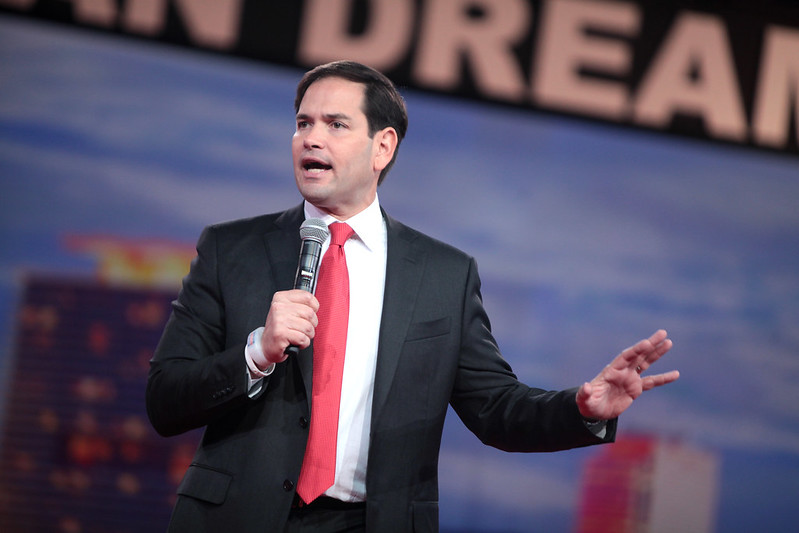Rubio’s evolution on climate offers change in GOP

On Feb. 7, Sen. Marco Rubio (R-FL) announced he would join the bipartisan Climate Solutions Caucus.
This move signifies a change in approach to environmental issues in some parts of the GOP. With luck, real climate action can come out of this caucus, created last October.
The caucus consists of six Republicans, five Democrats and one Independent, including known moderates like Sen. Susan Collins (R-ME) and Sen. Chris Coons (D-DE). The caucus was founded to create a bipartisan dialogue about climate change and aims to pass legislation that’ll tackle the threatening issue of climate change.
This change from Rubio is curious considering his past comments on climate change.
“There is a lot of debate about the causes and what percentage of it is due to human activity versus something else,” he said during an August 2019 CBS interview and has often been critical of “climate alarmism.”
However, after joining the caucus he released a statement with a different tone.
“Changes in our climate, such as the rise of sea levels, are measurable facts,” he said. “Many communities in Florida are already dealing with the consequences of these changes and will have to adapt to and mitigate against their impact for decades to come.”
Rather than seeing climate solutions as a hindrance to the economy, Rubio should continue to learn about the ways in which the Florida economy can expand with green jobs. The solar industry alone generated $17 billion in the US economy in 2018. Florida would be wise to ensure that some of those future jobs are created in the Sunshine State.
If GOP senators are moving in a new direction when it comes to dependence on fossil fuels, they’ll be facing an uphill battle. An analysis from the Center for American Progress found that 60 percent of Republican congresspeople are skeptical about climate change.
They also have financial incentives to be skeptical. According to the Center for Responsive Politics, a research group that tracks money in U.S. politics, oil and gas industries contributed an average of $61,200 to each Republican congressperson in the 2018 election cycle alone.
Rubio should work with this new caucus to advocate for reform in the Republican Party to support green energy initiatives.
Jared Sellick is a senior studying political science.






